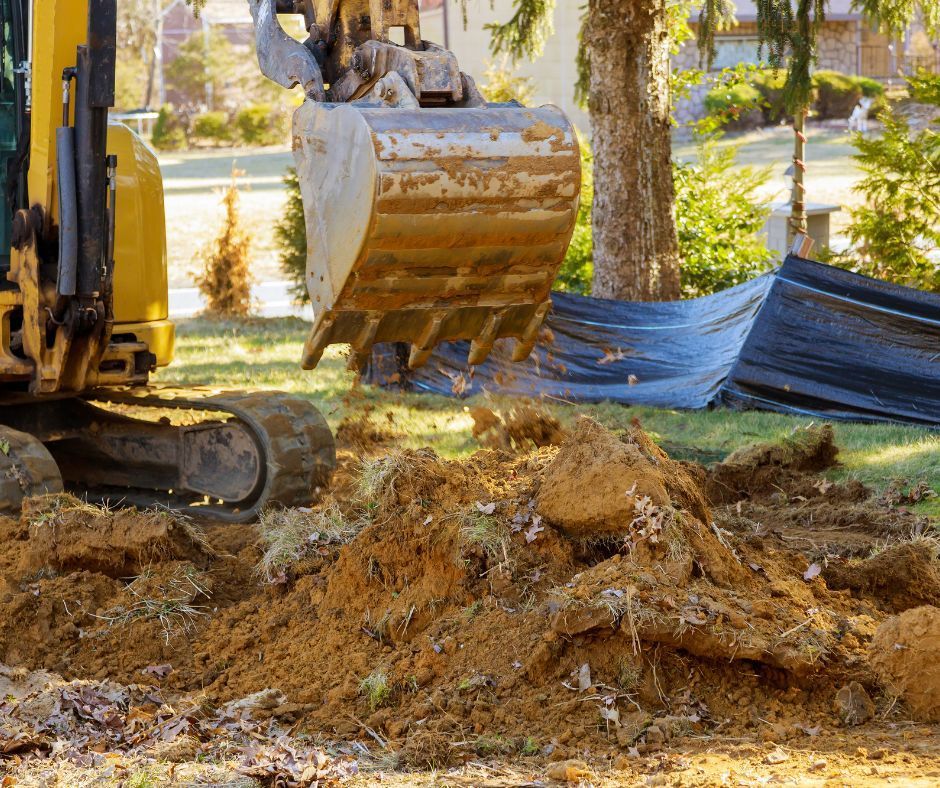When to Fertilise Lawn: Expert Tips & Advice for Best Results
A lush, green lawn is the cornerstone of a beautiful garden, but achieving this requires more than just regular watering. Lawn fertilisation is vital to promoting healthy, vibrant grass, as it provides essential nutrients that help your lawn grow strong and withstand harsh conditions.
Knowing how and when to fertilise a lawn is crucial for getting the best results. By timing your fertilisation right and using the appropriate nutrients, you’ll ensure your lawn thrives throughout the seasons.
Let’s dive into the best practices for lawn fertilisation, so you can enjoy a thriving garden all year round!
When to Fertilise Lawns in NSW
Timing is everything when it comes to lawn fertilisation and for property owners in NSW, getting it right can mean the difference between a thriving, green lawn and one that struggles to keep up. The climate here can be a bit of a mixed bag, with hot summers, cold winters and everything in between, so knowing when to fertilise is crucial to make sure your lawn gets the nutrients it needs at the right time.
The best time to fertilise lawns depends on a few key factors. Timing your fertiliser applications correctly helps your grass make the most of the nutrients, encourages strong root growth and vibrant colour and better resistance to weeds and pests.
When to Apply Lawn Fertiliser: Key Considerations
Knowing when to fertilise a lawn is crucial for a healthy lawn in NSW. If you go in too early or too late, you might end up wasting time, money and resources or worse, damage your grass, so it’s important to consider these factors:
Right Timing
Timing is everything! Applying fertiliser at the wrong time can mean nutrients go to waste, runoff in heavy rain or even burn your lawn in the heat. A well-timed fertiliser application during active growth for the best nutrient absorption.
Grass Type & Variety
Not all grass is the same, different types have different needs. Grass types, like buffalo or couches, have specific fertilisation needs. Some grasses thrive with a fertiliser application during spring, while others might need a top-up in autumn to prepare for the cooler months.
Soil Condition
If your soil isn't in good shape, your grass won’t absorb nutrients effectively. Soil testing can help identify any deficiencies and guide you on what fertiliser to use for optimal results.
Climate Zones in Australia
Australia’s diverse climate zones play a big role in how and when you should fertilise. What works in NSW’s coastal areas might not suit lawns in the inland regions. Understanding your local climate ensures your lawn gets the right care at the right time.
Lawn Health Status
Stressed lawns may require more frequent or targeted fertilisation to promote recovery and growth.
New Turf Application
Newly laid turf needs fertilisation to encourage strong root development and establish a healthy foundation.
Frequency of Application
Fertilisation frequency depends on your lawn’s usage and maintenance routine, such as mowing habits. Regularly mowed lawns may need more frequent feeding.
Type of Fertiliser
Choosing the right fertiliser can make a big difference in how your lawn responds. Here’s a quick rundown of your options:
- Liquid Fertiliser: Delivers quick results, perfect for immediate impact.
- Granular Fertiliser: Provides slow, steady nourishment for long-term benefits.
- Traditional Fertiliser: A versatile and reliable choice for general use.
- Organic Fertiliser: An eco-friendly option that enriches soil health.
Local Regulations and Restrictions
Before you start fertilising, it’s worth checking any local council regulations. Some areas have restrictions on fertiliser use to protect water systems. Check local guidelines to stay compliant.
Application Method
How you apply fertiliser is just as important as when you apply it. Using a spreader ensures even fertiliser distribution and prevents uneven coverage and over or under-fertilisation.

Best Time to Fertilise the Lawn
Knowing the best time to fertilise the lawn is key to achieving a healthy, vibrant lawn. The timing of your fertiliser application affects the growth, appearance and long-term health of your grass, so it's important to get it right.
Seasonal Timing
For the best results, aim to fertilise three times a year, during spring, summer and autumn. If you can only fertilise once, spring is the most important time to apply fertiliser, as it sets the foundation for strong growth.
Time of Day
To maximise nutrient absorption and reduce waste, apply fertiliser early in the morning or late in the afternoon. Applying fertiliser during these cooler parts of the day helps prevent nutrient loss due to evaporation and reduces the risk of scorching your grass under the harsh midday sun.
Fertilisation Tips for Common Grass Types in Australia
Different grass varieties have unique fertilisation needs, so understanding what works best and when to apply lawn fertiliser based on your lawn type can help you achieve better results and keep your lawn thriving all year round.
Couch Grass
Fertilise in both spring and summer to support its fast-growing nature and maintain a lush, green lawn.
Buffalo Grass
This grass type thrives with regular fertilisation in spring and autumn to maintain its thick, healthy coverage.
Kikuyu Grass
For vigorous growth, Kikuyu responds well to regular feeding throughout spring and summer, when the grass is most active.
Fescue Grass
Being cool-season grass, it benefits from fertilising during cooler months, typically autumn and early spring for consistent growth.
Zoysia Grass
Known for its drought tolerance, zoysia enjoys fertilisation in summer and autumn to sustain its thick, attractive coverage.
Importance of Having Knowledge About When to Fertilise Lawn
Understanding the best time to fertilise your lawn isn't just about keeping it looking good. It’s also about making sure it gets exactly what it needs when it needs it. Here’s why timing is everything:
Enhances Growth
Proper fertilisation encourages thicker, greener grass by supplying the essential nutrients needed for healthy development.
Prevents Overgrowth
Fertilising at the right time ensures balanced growth, preventing excessive or uneven growth, which helps keep your lawn manageable and prevents unnecessary mowing.
Saves Resources
Applying fertiliser when your lawn can best absorb it means you won’t waste product or water and saves you time, money and effort.
Improves Soil Health
Fertiliser replenishes essential nutrients in the soil, improving its overall quality and supporting healthier grass growth.
Boosts Lawn Resilience
A well-fertilised lawn is more resilient to environmental stressors, such as extreme weather conditions and heavy foot traffic.
Best Practices During the Best Time to Fertilise Lawn
To get the most out of your fertiliser and ensure your lawn thrives, follow these best practices during your fertilisation sessions.
Test Soil First
Before fertilising, test your soil to understand what nutrients it really needs. This helps you choose the right fertiliser and avoid overfeeding or underfeeding your lawn.
Follow Manufacturer Instructions
Always apply fertiliser according to the manufacturer's instructions to avoid overuse. Too much can do more harm than good and may lead to burnt grass and wasted products.
Water Before and After Application
Watering your lawn before applying fertiliser helps the soil absorb nutrients more effectively while watering afterwards helps distribute the fertiliser evenly.
Use the Right Equipment
Using a spreader ensures even distribution of fertiliser and prevents patches of over-fertilisation or under-fertilisation.
Keep Fertiliser Off Non-Lawn Areas
Be mindful when applying fertiliser near driveways, paths and garden beds to avoid runoff, which can stain surfaces or harm other plants. Use a spreader or hand techniques to keep fertiliser within lawn boundaries.

Get The Perfect Lawn with MRN Excavations
Looking for the reset button on your lawn?
Our expert lawn prep and installation services are available in
Sydney,
Campbelltown and
Wollongong. We can turn your lawn into the envy of the neighbourhood! Make sure to
get in touch with us today to make it happen!



